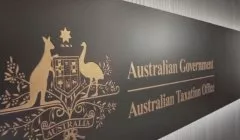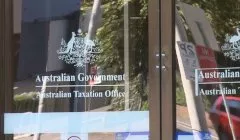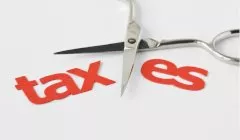Earn
The ATO is targeting side hustlers: Here’s what you need to know
If you don’t keep on top of what your side hustle means for your tax obligations, you’re asking for trouble.
The ATO is targeting side hustlers: Here’s what you need to know
If you don’t keep on top of what your side hustle means for your tax obligations, you’re asking for trouble.

Starting a side hustle can open a path towards financial freedom, but that opportunity comes with the risk of falling afoul of the Australian Taxation Office.
Director of tax communications at H&R Block Mark Chapman said that starting a side hustle comes with tax obligations that have to be met.
“Ignore them, and you can quickly run into trouble with the taxman,” he said.
The first tip that Mr Chapman offered when it comes to side hustles is to remember that every extra dollar your business earns will count against your annual taxable income.

Even if you get paid in cash, you’ll need to declare that additional income. Mr Chapman warned that not doing so comes with significant risks, so it’s much better to err on the side of caution.
“The ATO traps many businesses that — deliberately or otherwise — don’t record cash sales,” Mr Chapman said.
If the annual turnover of your business is greater than $75,000, you’ll also have to register your small business for GST and apply that tax to transactions. Having to do adopt this extra tax obligation can sometimes work in your favour.
“You can offset the GST you pay on your purchases and expenses against the GST you owe; only the net figure is paid to the taxman,” Mr Chapman explained.
Keeping track of just how much extra income you need to declare can be messy.
To help alleviate this, Mr Chapman recommended investing in your business via professional bookkeeping software.
“Sure, it’s an extra cost, but it’s one less stressful task to worry about,” he said.
“There are lots of accounting software packages out there that will help you keep on top of your figures, but if you’re not a numbers person, consider getting a professional bookkeeper to do the job for you.”
Having the right records in place is also an important step when it comes to deductions.
Handling this aspect of the tax system correctly can usually be time-consuming, but it’s usually worth the trouble. The total extra income of your side hustle is going to be dependent not just on the amount earned, but also the amount of deductions made.
For that reason, Mr Chapman advocated for both consistency and comprehensiveness.
“Make sure you claim all your business expenses, whether that’s the cost of buying stock, heating your office, marketing your brand or travelling to meet customers — or any of the numerous other expenses you might incur,” he said.
Mr Chapman said that one of the most common pitfalls for new business owners is failing to set money aside to pay their taxes.
“Particularly if you’re coming out of a paid job, you’re probably used to getting your taxes deducted straight from your pay packet by your employer,” he said.
“But now you’re in business on your own account, nobody is going to be deducting anything, so you need to proactively manage your cash flow to set money aside for future tax bills.”
Mr Chapman said that for small businesses, cash flow is king.
“Even if you seem to be trading profitably, if your customers aren’t actually paying your invoices, you’ll struggle to pay your debts and one organisation you definitely don’t want to end up in debt to is the ATO,” he said.
About the author

About the author


Tax refund
How a $140k 'repair' became a tax strategy triumph and competitive edge
A Sydney investor secured an immediate deduction for $140,000 in rental property works after the ATO initially treated the spend as capital. In a market where the ATO says most rental schedules ...Read more

Tax refund
The ATO will be focusing on these four issues at tax time
The tax office has indicated it will be scrutinising areas where taxpayers are known to make mistakes. Read more

Tax refund
More than half of Aussies get stressed at tax time, survey finds
Many taxpayers feel that they may be missing out on deductions in their tax returns. Read more

Tax refund
Engage or face firmer action, ATO warns taxpayers with unpaid debts
The tax office is offering support and assistance to those with overdue debts. Read more

Tax refund
How to prepare for your tax return
While the end of the financial year is still a couple of months away, you can take action now to help maximise your tax return. Read more

Tax refund
What issues will be on the ATO’s radar this year?
H&R Block has outlined two main areas that the tax office is expected to focus on. Read more

Tax refund
How does the expanded low and middle income tax offset work?
Millions of taxpayers will receive hundreds of dollars more in their tax return this year. Read more

Tax refund
Why 90% of taxpayers could face a higher tax bill next financial year
A tax offset for over 10 million Aussies may not be extended in next month’s budget. Read more

Tax refund
How a $140k 'repair' became a tax strategy triumph and competitive edge
A Sydney investor secured an immediate deduction for $140,000 in rental property works after the ATO initially treated the spend as capital. In a market where the ATO says most rental schedules ...Read more

Tax refund
The ATO will be focusing on these four issues at tax time
The tax office has indicated it will be scrutinising areas where taxpayers are known to make mistakes. Read more

Tax refund
More than half of Aussies get stressed at tax time, survey finds
Many taxpayers feel that they may be missing out on deductions in their tax returns. Read more

Tax refund
Engage or face firmer action, ATO warns taxpayers with unpaid debts
The tax office is offering support and assistance to those with overdue debts. Read more

Tax refund
How to prepare for your tax return
While the end of the financial year is still a couple of months away, you can take action now to help maximise your tax return. Read more

Tax refund
What issues will be on the ATO’s radar this year?
H&R Block has outlined two main areas that the tax office is expected to focus on. Read more

Tax refund
How does the expanded low and middle income tax offset work?
Millions of taxpayers will receive hundreds of dollars more in their tax return this year. Read more

Tax refund
Why 90% of taxpayers could face a higher tax bill next financial year
A tax offset for over 10 million Aussies may not be extended in next month’s budget. Read more










